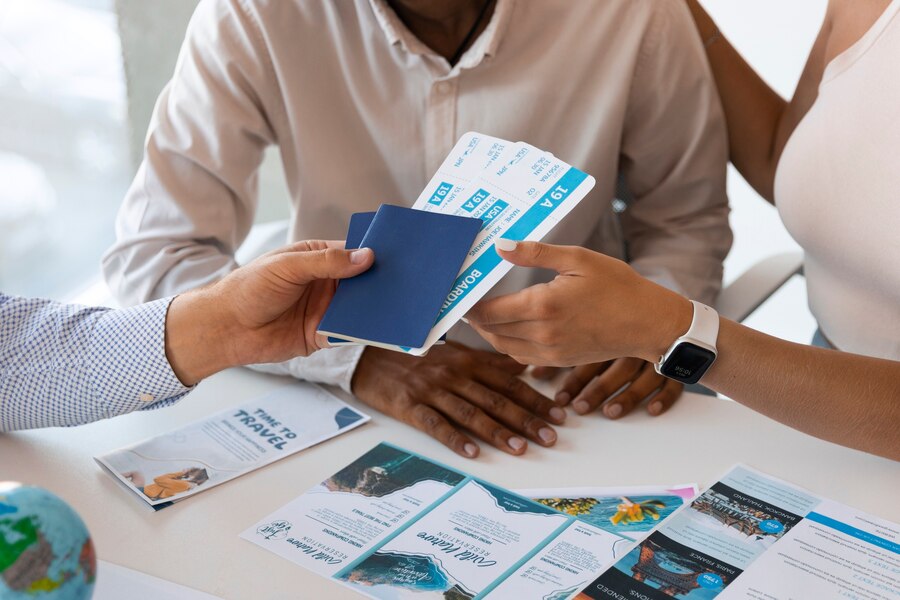Travelling abroad can be an exciting adventure, but it also comes with its fair share of paperwork and regulations. Two essential documents you would encounter on your international journey are passports and visas. These are the documents you need to have with yourself when travelling abroad. While they both play a crucial role in allowing you to travel outside your home country, they serve different purposes and are often confused.
Buy International Roaming Pack
So, in this guide, we would break down the differences between passports and visas, which would further help you understand the complexities of international travel with ease. So, let’s move ahead and take a look at what passports and visas actually are.
What is a Passport?
A passport is a government-issued document that serves as proof of your identity and nationality. It usually contains information such as your name, date of birth, photograph, and signature. You can think of it as your global ID card as it allows you to enter and exit countries around the world. Every country issues its own passports, and they are required for international travel. Without a valid passport, you would not be allowed to cross international borders. That’s why they are of substantial importance.
Types of Passports
Usually, there are three types of passports:
Regular Passports:
- Intended for ordinary citizens
- Used primarily for personal travel purposes
- Important for leisure trips, family vacations, and visits to friends or relatives abroad.
- Contains standard personal information such as name, date of birth, and photograph.
Diplomatic Passports:
- Issued exclusively to diplomats and high-ranking government officials.
- Confer special privileges and immunities in accordance with diplomatic protocols.
- Facilitate diplomatic missions, official government business, and representation abroad.
- Grant holders exemptions from certain entry and exit requirements imposed on regular travellers.
Official Passports:
- Designated for government employees engaged in official business activities.
- Issued to individuals representing the government in international forums, conferences, or negotiations.
- Serve as a credential for official delegations, ensuring smooth interactions with foreign counterparts.
- Offer privileges similar to diplomatic passports, albeit with varying degrees of diplomatic immunity based on official rank.
What is a Visa?
While a passport proves your identity and nationality, a visa is a separate document issued by the country you wish to visit. It grants you permission to enter and stay within that country for a specified period and purpose. Unlike passports, which are standardised globally, visa requirements vary from country to country. Some nations allow visa-free entry for certain passport holders, while others require visas for all visitors. There are also several countries that provide visa-on-arrival facilities.
Also Read: Things to Setup on Your Smartphone for International Trips
Types of Visas
Visas come in different types, depending on the purpose of your visit. Here are the major types:
- Tourist Visas (Designed for individuals seeking leisure travel and exploration of foreign destinations)
- Business Visas (Tailored for professionals travelling for business-related purposes)
- Student Visas (Issued to individuals pursuing educational opportunities in foreign academic institutions)
- Work Visas (Essential for individuals intending to undertake employment or professional work in a foreign country)
When Do You Need a Passport?
You need a passport whenever you travel internationally, regardless of the purpose or duration of your trip. It serves as your primary form of identification and is required for entry into foreign countries and re-entry into your home country.
When Do You Need a Visa?
On the other hand, you need a visa only if the country you are visiting requires one for your nationality. Check the visa requirements of your destination well in advance and apply accordingly to avoid any last-minute hassles.
How to Obtain Them
Obtaining a passport usually involves submitting an application form, along with supporting documents such as proof of citizenship and identity, passport-sized photographs, and payment of applicable fees. The process may vary depending on your country of residence. As for visas, you would need to apply directly to the consulate or embassy of the country you plan to visit. Requirements may include a visa application form, passport photos, proof of travel arrangements, and proof of financial means to support your stay.
Also Read: How To Keep Airtel SIM Active While Travelling Abroad?
Conclusion
So, passports and visas are essential documents for international travel, though they serve different purposes. Always remember to check the visa requirements of your destination before you travel and ensure that your passport is valid for the duration of your trip. With proper planning and preparation, you can enjoy a smooth travel experience.
If you are an Airtel customer planning an international trip, don’t forget to explore the convenient international roaming packs available through the Airtel Thanks App for uninterrupted connectivity abroad.
Safe Travels!



